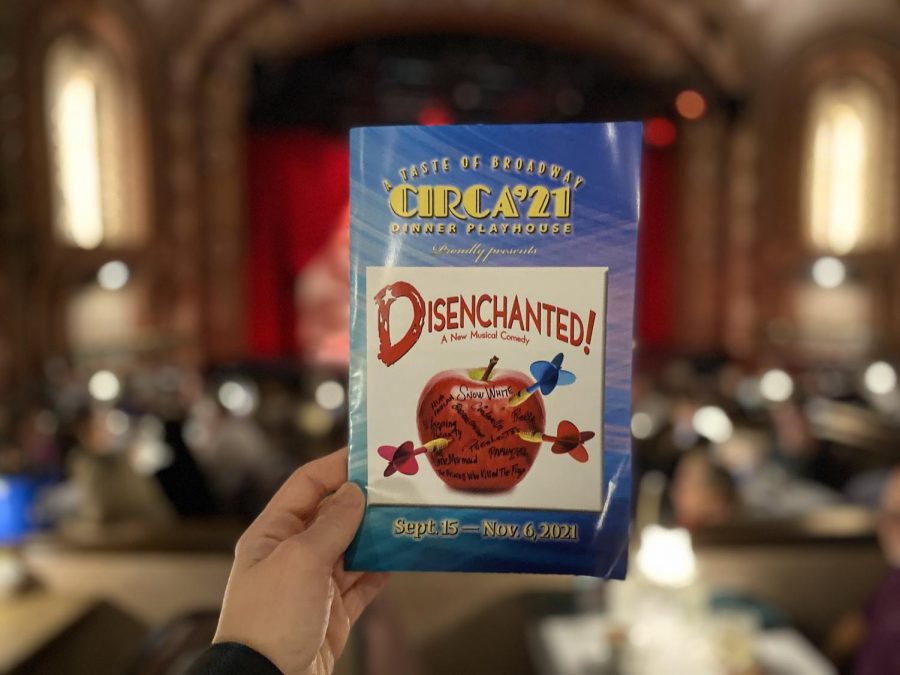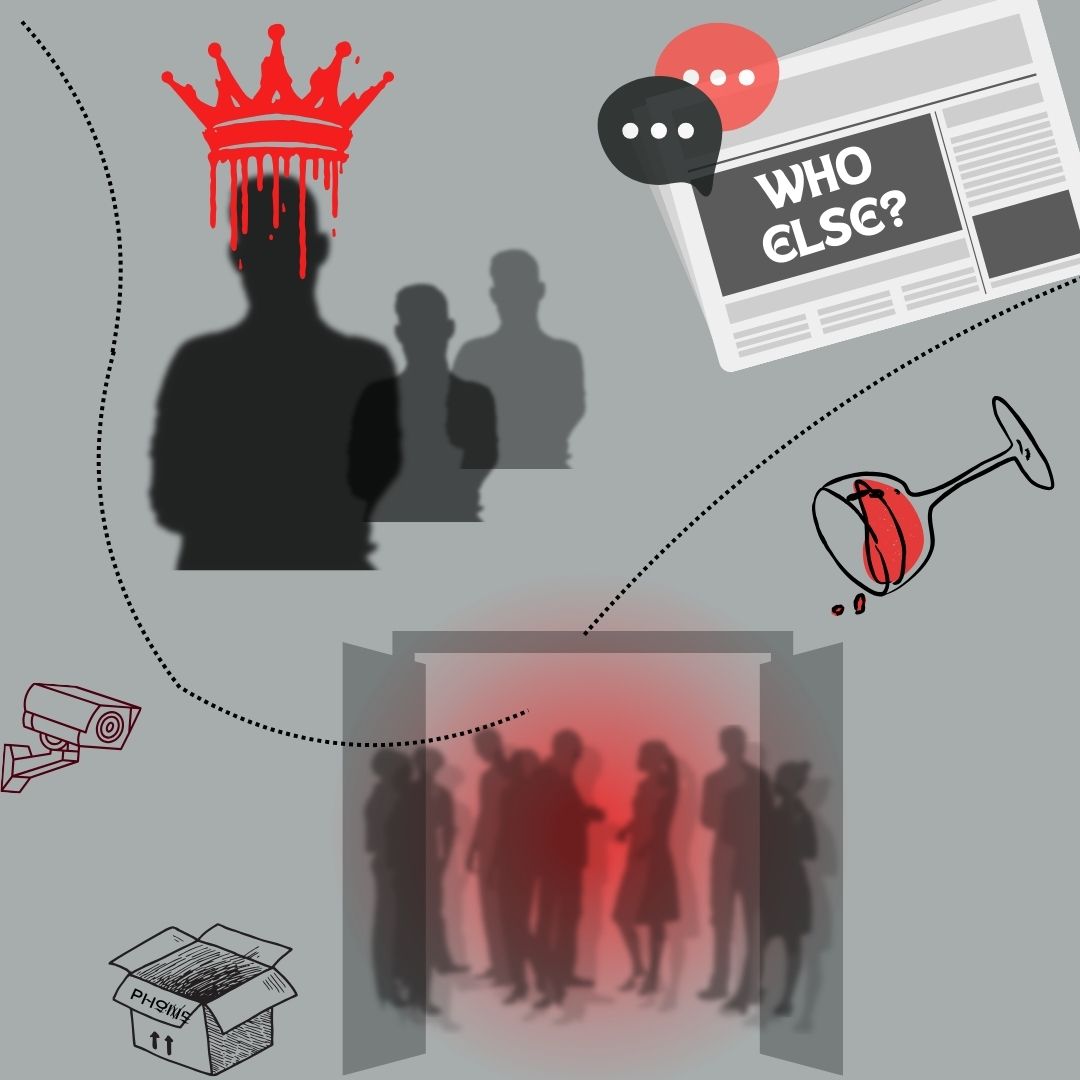Circa 21’s “Disenchanted” transcends the normal stereotypes given to Disney princesses as they shatter glass slippers.
“Disenchanted” is a musical where Snow White is not so dainty and nice and where princess Jasmine goes by her real name from the original story, Badroulbador. It can be classified as sassy, comical, satirical, high energy and progressive. It exaggerates the stereotypes given to women and leaves the audience with a sense of understanding.
Kim Kurtenbach played Snow White in the show, and she was more than happy to explain her gratification in being a member of the cast. “I can relate to the show simply because I am a woman. There is an idea put out into the world that women are supposed to look a certain way or act a certain way and I love that this show helps break the mold so to speak,” she said.
Right away, the musical captivates the audience. The actresses involved the audience in the show, whether it be through cheers, conversations or singing. The musical was modernized, making references to ESPN and Little Debbies.
Women were able to relate to topics being discussed in the show, as each princess emphasized the ways they have been oversexualized for years and years. The Disney princesses described how they were speaking up for “all the women in the room.”
While the performance was great and there was amazing audience participation, the show itself did seem a bit ironic. In trying to overcome the previous stereotypes the Disney princesses succumbed to, they played into even more cliches. In the end, though, these stereotypes and cliches proved useful for the satirical effect.
The show joked about Mulan being lesbian because she dressed like a man. Cinderella was still ditzy, and Rapunzel was a more masculine, aggressive character. “Disenchanted” used satire to address the issues with Disney princesses in a comical way. Even though this satire did not resonate with every person, the majority of the audience was left laughing line after line.
Towards the end of the show, the satirical aspect slowed down.
It is apparent that they want to leave the audience considering the performers’ message. Kurtenbach said one of her favorite lines was at the end of the show. “It’s time we take these well-worn fairytales and movies and make them what they really ought to be. Nothing more than… once upon a time,” she said.
Another impactful part of the musical was the reference to the princess complex. This complex describes how princesses are only desirable and valid if they are beauty-obsessed and ditzy. To fully emphasize this concept, the musical brings in the princess complex perfume.
The princess complex perfume helped any female reek with desperation and insecurity in order to get a man for their happily ever after. In a demonstration of this, they also discussed the rules of the princess complex: rule number 323 “We never eat.” Continuing to exaggerate this idea, the princesses sing a whole song about not eating with references to the removal of ribs and one slice of pizza per week.
It was obvious that the actresses were happy to be on stage telling their stories. Discussing topics like the exploitation of classic stories for profits and how princesses were written by men appeared to be refreshing for the actresses as they added value to their own stories by making their own stories.
“Disenchanted” was a well-performed musical that offered a refreshing take on Disney Princesses. The show included a number of mature jokes that left the audience bouncing in their seats with laughter. Seeing the stereotypes portrayed in a satirical way, “Disenchanted” provided an invigorating take on tales as old as time.










